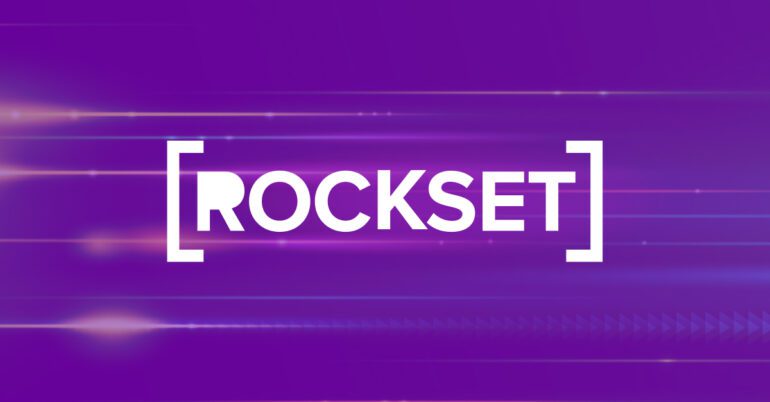TL;DR:
- Rockset introduces new vector database capabilities, including ANN search and support for LlamaIndx and LangChain.
- GenAI applications, driven by large language models and vector search, are gaining momentum.
- Companies often face challenges transitioning GenAI projects from development to production.
- Rockset’s unique ANN implementation rebuilds indexes in real-time, offering a cost-effective and real-time solution.
- Compute-compute separation in Rockset enables scalable GenAI applications.
- The ability to store all data in one place simplifies hybrid searches across vectors and metadata.
- Demand for vector capabilities in the database market has surged.
- JetBlue adopts Rockset for GenAI and real-time analytics.
Main AI News:
In the fast-evolving landscape of generative AI (GenAI) and vector search, Rockset is leading the charge with its groundbreaking vector database capabilities. Today, we delve into the latest developments from Rockset, including the integration of approximate nearest neighbor (ANN) search and seamless support for LlamaIndx and LangChain. These enhancements are set to empower businesses to scale their GenAI applications efficiently once they transition into full-scale production.
Rockset co-founder and CEO Venkat Venkataramani emphasizes the industry’s growing interest and early successes with GenAI applications powered by large language models (LLMs) and vector search. He highlights that companies have already begun to explore the transformative potential of vector search, experimenting with prototypes and witnessing its magic firsthand.
However, as promising as GenAI and vector search may be, the transition from development to production often presents significant challenges. Venkataramani reveals that many companies have encountered issues when attempting to scale their GenAI solutions, particularly when relying on open source vector databases. The stability, scalability, and cost-effectiveness of these databases frequently become stumbling blocks.
Earlier this year, Rockset took a significant step forward by introducing support for vector search and vectorized embeddings. This move was fueled by the soaring demand for data types crucial for enabling vector search and other GenAI applications built on LLMs and computer vision models. The addition of ANN and native support for LlamaIndex and LangChain further reinforces Rockset’s position as a leading provider of scalable GenAI solutions.
The ANN algorithm stands out as a critical element in matching GenAI application user input to pre-generated vector embeddings stored in a vector database. It powers similarity searches in vector search and plays a pivotal role in various GenAI use cases, including text and computer vision applications.
What sets Rockset apart is its real-time implementation of ANN, allowing the database to rebuild the ANN index as new data arrives without requiring downtime. In contrast, other vector databases rely on batch mode, which is computationally expensive and less real-time.
Rockset’s support for compute-compute separation enables it to perform tasks like index rebuilding and maintenance without affecting the main vector query workload. This separation is a key advantage for scaling GenAI applications, as it allows for independent scalability and isolation while working on the same data.
Another distinguishing feature of Rockset’s distributed relational database is its ability to store all customer data, not just vectors. This eliminates the need for a separate database for structured data, simplifying hybrid searches across vectors and metadata.
Venkataramani cites the example of powering a song recommendation engine, where combining vectors and metadata efficiently is crucial. With Rockset, all the data resides in one place, enabling seamless integration and optimization.
The demand for vector capabilities in the database market has surged since OpenAI’s introduction of generative AI models like ChatGPT. Rockset’s vector capabilities are gaining traction among existing customers and prospective businesses looking to enhance their GenAI applications, from chatbots and recommendation engines to vector search.
Venkataramani concludes by emphasizing that AI applications are becoming ubiquitous in every industry. Every application is set to incorporate AI models and capabilities, and Rockset’s advanced database solutions are at the forefront of enabling this transformation.
One of the notable companies embracing Rockset’s vector capabilities is JetBlue. The airline’s decision to leverage Rockset for GenAI and other applications underscores the real-time analytics and AI’s transformative power in accelerating decision-making and automation. With Rockset, JetBlue found a robust database solution that keeps pace with its innovation-driven journey.
Conclusion:
Rockset’s advanced database solutions mark a significant step forward in empowering GenAI applications. With real-time ANN capabilities, seamless compute separation and unified data storage, Rockset addresses critical challenges in scaling GenAI projects. This development reflects the growing importance of AI capabilities across industries, presenting substantial market opportunities for database providers like Rockset.

